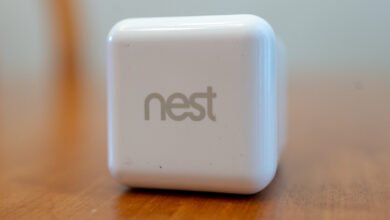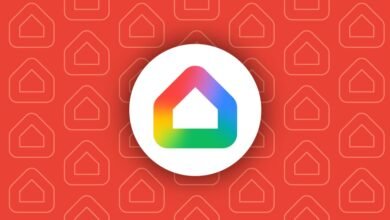Nest is Dead, Long Live Google Home

▼ Summary
– Google has completed migrating key Nest smart home device features from the Nest app to the Google Home app, though some functionality remains in beta.
– The author criticizes Google for dismantling Nest’s innovative hardware ecosystem, replacing it with inferior third-party products lacking design and integration.
– Google’s smart speakers and displays have stagnated since 2021, with declining performance due to Assistant’s deterioration and a shift toward Gemini AI.
– Google is now focusing on injecting Gemini into cameras and speakers, prioritizing AI over hardware refreshes, with only minor updates like resolution bumps.
– The author expresses skepticism about Google’s software-focused strategy, noting it abandons loyal Nest users and questions if Google Home can match Nest’s legacy.
The long-awaited migration of Nest smart home devices into the Google Home app is finally complete, marking the end of an era for the once-dominant Nest ecosystem. Google claims users can now delete the Nest app for good, though some features remain in beta. This consolidation arrives after more than three years of transition, a surprisingly slow pace for a tech giant, and coincides with the gradual disappearance of Nest’s original, beloved hardware.
What began as a promising acquisition has turned into a story of fragmentation and decline. Nest devices, conceived by founders Tony Fadell and Matt Rogers, were once industry benchmarks, praised for their intelligence, elegance, and seamless integration. Today, those products are gone, replaced by less inspired alternatives that lack Nest’s signature design and ingenuity.
Take the new Yale Smart Lock with Matter. It feels plasticky and underwhelming next to the premium Nest x Yale Lock, and it doesn’t integrate with Google’s ADT Plus security system in the same intuitive way. Similarly, the First Alert SC5 smoke alarm, now Google’s recommended replacement for the Nest Protect, may be smart and compatible, but it can’t replicate the Protect’s sleek design, built-in path light, or presence-sensing capabilities.
It’s frustrating to witness how Google has systematically dismantled the very hardware that made its smart home vision compelling. While the company has poured resources into revamping the Google Home app, making it more versatile across devices, its hardware strategy has languished. The Nest Hub line hasn’t seen a refresh since 2021, and user complaints about Google Assistant’s declining performance have grown louder. Basic commands fail, routines misfire, and response times lag, issues so widespread that Google’s own product chief felt compelled to apologize.
This stagnation is especially puzzling given the rising importance of smart speakers and displays. These devices aren’t just accessories; they’re gateways to the smart home and ideal vehicles for AI integration. With ChatGPT dominating the conversation on mobile, Google’s delay in embedding Gemini AI into new hardware feels like a missed opportunity. Even the Pixel Tablet, rumored to have started as a Nest Hub project, ended up as a diluted product that failed to capture consumer interest.
Cameras and speakers now appear to be Google’s hardware priorities, largely because they offer the easiest path for Gemini integration. AI vision models are gaining traction for their ability to add contextual awareness, a critical element for any advanced smart home system. Google has already started rolling out these capabilities to existing Nest cameras, following a trend also seen with Amazon’s Alexa and Ring.
Yet beyond software upgrades, there’s little indication of meaningful hardware innovation. Nest cameras are rumored to receive only a resolution bump to 2K, hardly the refresh needed to compete in a rapidly evolving market. The one bright spot remains video doorbells, where Google’s wired model still ranks among the best, even if it doesn’t quite match the original Nest Hello.
For those of us who invested early in the Nest ecosystem, Google’s pivot toward a software-centric, third-party-dependent model is disappointing. Nest hardware was more than just products; it was a cohesive, reliable system that set the standard. Today, if you want a thoughtfully designed, hardware-led ecosystem, you might be better off with brands like Ecobee or Aqara, companies fully committed to building integrated suites of innovative devices.
In theory, an open smart home platform powered by Matter and Gemini sounds promising. It aligns with broader industry shifts toward interoperability. But theory alone won’t win back loyal users who remember what Google had, and what it chose to walk away from. The original Nest is gone. Whether Google Home can ever fill that void remains uncertain.
(Source: The Verge)




